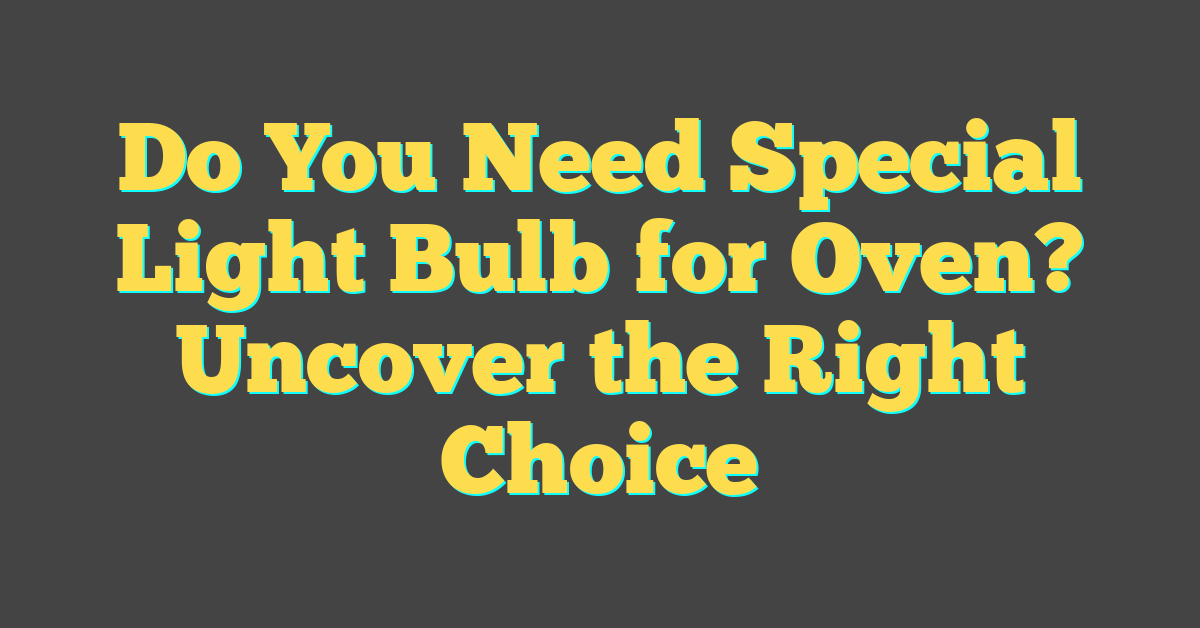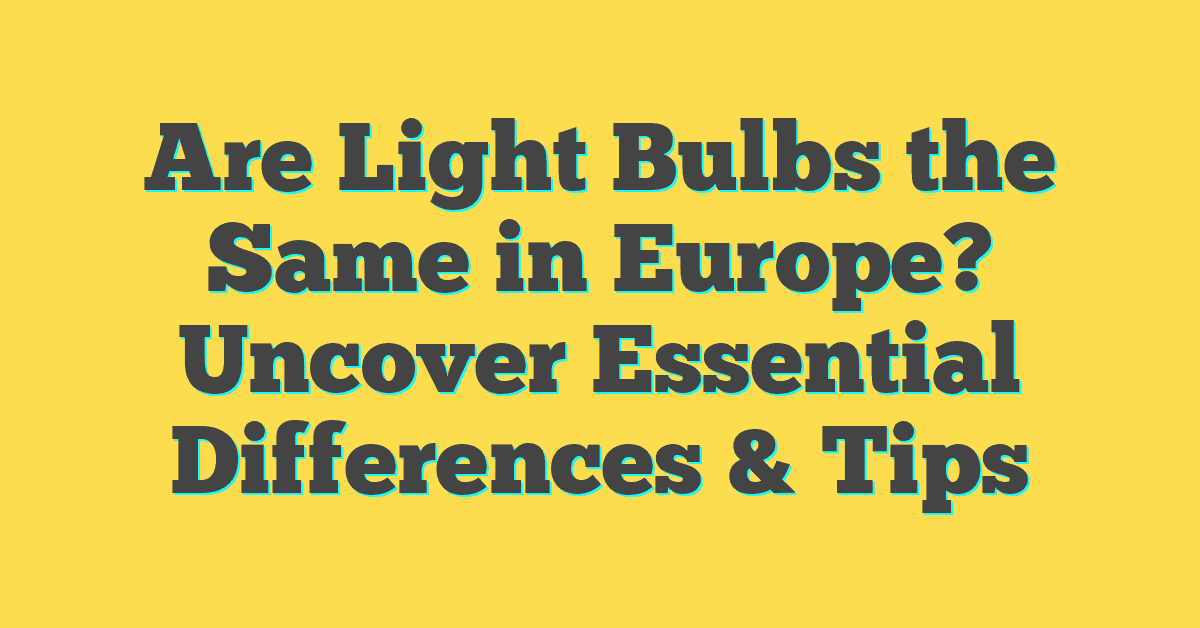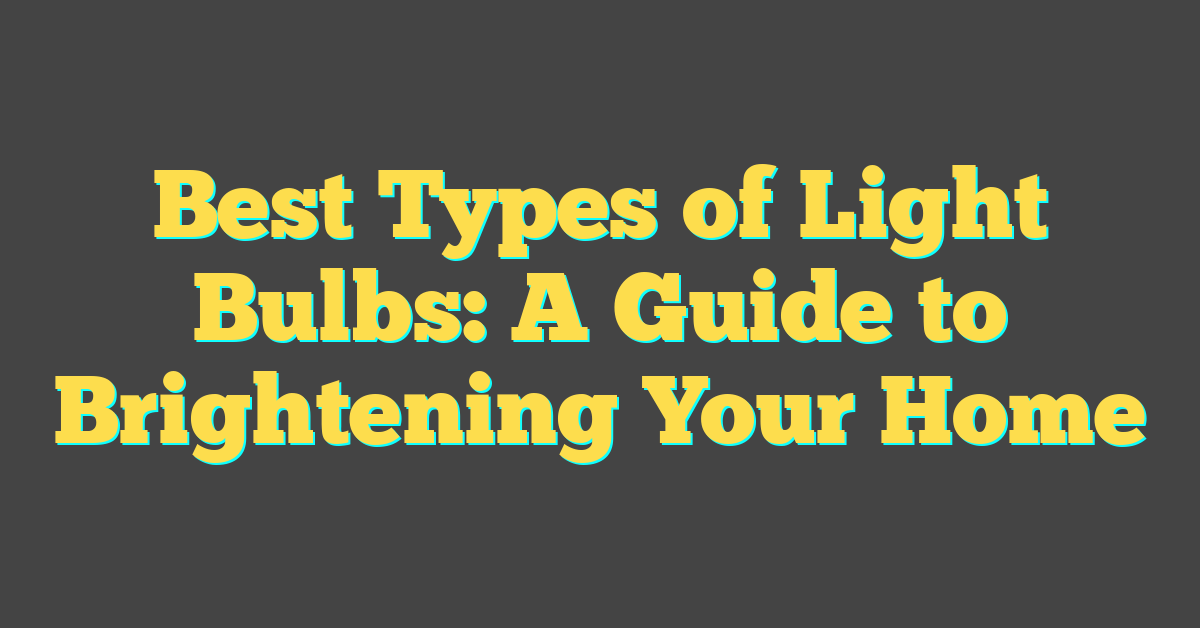Ever peeked into your oven, hoping to catch a glimpse of your cake’s golden-brown finish, only to be greeted by darkness? It’s not just about seeing your culinary creations; the right light bulb is key to a well-functioning oven. You might wonder if any old bulb will do the trick or if your oven requires something special.

Navigating the world of appliances can sometimes feel like decoding a high-tech puzzle. When it comes to your oven’s light bulb, there’s more to consider than just wattage and size. Let’s shed some light on whether you need a special bulb for your oven, so the next time you’re baking, you’ll be in the know.
How important is the light bulb in an oven?
When you’re whipping up your favorite dishes or trying out a new baking recipe, knowing just how your food is progressing without opening the door is crucial. That’s where your oven’s light bulb steps in. It’s not just a convenience; it’s a vital component for precise cooking. With the right illumination, you can peer through the oven’s window, monitor browning, rising, or any potential boil-overs. This saves you from heat loss and possible cooking time adjustments which might occur every time the oven door is opened.
A properly functioning oven light bulb also ensures safety. It helps you spot when something’s amiss, like an overflow or smoke signals that could spell disaster. Remember, with baking, every detail counts, and visibility can be the difference between culinary triumph and a less-than-perfect bake. The oven light bulb might seem like a small player in the grand scheme of kitchen appliances but it has a significant role in the overall cooking experience.
On the market, there are several types of oven bulbs, but not all are created equal. They are built to withstand extreme temperatures and are more vibration-resistant compared to your typical bulbs. Expect these to come with specifications like high-temperature resistance and a sturdy construction to handle oven environments that can soar above 500°F (260°C).
Choosing the right bulb goes beyond the practical aspects; it’s also about maintaining the performance and lifespan of your appliance. Using an unsuitable bulb could lead to frequent replacements and could even damage your oven’s electrical system. So when selecting a bulb, pay attention to models that are designed specifically for ovens. They might look similar to other bulbs, but they pack the resilience needed for the heat, making them an indispensable asset for any home chef.
The role of wattage and size in choosing an oven light bulb

Wattage and size aren’t just tiny details when picking out your oven light bulb. They can make or break your appliance’s performance. Dive into the specs of your oven manual, and you’ll notice that manufacturers specify certain wattages and bulb sizes. There’s good reason for this.
Your oven isn’t like the lamp in your living room. It faces high temperatures and, as a DIY enthusiast, you know heat affects everything. A wrong wattage can lead to overheating or insufficient illumination. Bulbs with higher wattage than necessary can damage the socket and insulation, reducing the lifespan of both the bulb and the oven.
Typical wattages for oven bulbs are between 15 and 40 watts. Always match the wattage to avoid any mishaps. Remember, more wattage doesn’t mean better. It’s about the right fit for your appliance.
Moreover, size matters. You might think any small bulb can tuck into your oven’s corner, but it’s more complex. An ill-fitting bulb can be loose, prone to vibrations, and may burn out faster. Meanwhile, a bulb that’s too large could touch other components of the oven, causing safety risks.
Here’s what you need to look for:
- Find the prescribed wattage for your oven model and stick to it.
- Check the manual or old bulb for the exact size – you’ll often find it requires a specific fit. Think snug, not squeezed.
- Bear in mind the bulb shape – some ovens need round bulbs, while others work best with tubular ones.
Lighting your oven is like fitting a puzzle piece – the right wattage and size will ensure a picture-perfect baking experience. While you’re at it, don’t forget to investigate the bulb’s durability. Oven-specific bulbs are built to withstand extreme environments. Using just any bulb you find lying around the house is not an option if you’re serious about your baking. Quality and specs should drive your bulb shopping, ensuring you’re baking under the best light there is.
Why a specialized bulb may be needed for your oven

Have you ever wondered why you can’t just pop any old light bulb into your oven? Well, it’s because ovens require bulbs that are built to endure extreme conditions. Unlike standard bulbs, oven bulbs are designed to survive in high temperatures, typically up to 500 degrees Fahrenheit or even more. This durability is crucial because a typical bulb would likely fail rapidly when exposed to the harsh environment inside an oven.
« How Much Are Tail Light Bulbs? Shop Smart for Savings & Safety
Are Light Bulbs Vacuum Sealed? The Surprising Evolution Explained »
Another reason specialized bulbs are necessary is due to their resistance to temperature fluctuations. Your oven’s interior experiences rapid heating and cooling cycles when it’s turned on and off, which can spell disaster for regular household bulbs. Oven bulbs are manufactured to withstand these sudden changes without cracking or bursting, ensuring they last much longer.
Let’s not overlook the safety aspects. A bulb that’s not designed for high-heat use might not only burn out quickly but could also shatter. Imagine trying to extract glass shards from your hot oven—not exactly a pleasant or safe task.
Moreover, these oven bulbs are fashioned with stronger filaments which prevent premature breakage that can occur due to vibrations from opening and closing the oven door. The construction of the glass envelope is also made with silica that has a higher melting point, thus providing that added robustness your oven demands.
Beyond enduring high temperatures and rapid thermal transitions, the base of an oven bulb is built differently, often with brass or nickel-plated bases to resist corrosion and ensure a secure fit within your oven’s socket. And since oven bulbs are left on for extended periods—often for the whole duration of cooking—a robust construction ensures energy isn’t wasted on frequent replacements.
To sum it up, while it may be tempting to just use a standard bulb, it’s clear that investing in the right bulb for your oven is not only smart but also essential for performance, longevity, and safety. Make sure you’re choosing a bulb that can stand up to the heat of your culinary adventures.
Understanding temperature resistance for oven light bulbs

When you’re in the market for an oven light bulb, you’ll find the term ‘temperature resistance’ popping up quite frequently. But what does it really mean for a bulb to be temperature resistant?
Temperature resistance in light bulbs, especially those used in ovens, signifies the ability to endure extreme heat without malfunction or degradation. Standard bulbs aren’t equipped to handle the high temperatures that can soar well above 200°C (392°F) in a typical oven. Oven bulbs, on the other hand, are engineered using materials that can tolerate these intense conditions.
Here’s what sets these specialized bulbs apart:
- Reinforced Glass: Oven bulbs use glass designed to withstand high heat, reducing the likelihood of breakage.
- Robust Filament Composition: The filaments are constructed to manage the thermal stress of rapid heating and cooling.
- Equipment-Specific Designs: Many oven bulbs are shaped and sized uniquely to optimize performance and longevity inside your oven.
Why is it essential for the bulb to resist such high temperatures? If a non-resistant bulb is used in your oven, it risks not only burning out quickly but also shattering. This can spread glass shards throughout your oven, posing a safety hazard and a real mess to clean up.
To ensure that you’ve got the right bulb for the job, always check the specifications for temperature resistance. Typically, oven bulbs are marked with their maximum operating temperatures so you can match them with the conditions your oven produces.
Remember, investing in a bulb with the correct temperature resistance is not just about maintaining visibility in your oven; it’s about ensuring the safety and functionality of your appliance over time. So next time you’re replacing your oven light bulb, give a thought to the unseen hero—the temperature resistance—that makes all the difference in keeping your oven illuminated and operational.
The best type of light bulb for ovens

When you’re scouring the market for the perfect oven light bulb, you’ll discover that not all bulbs are created equal. Appliance bulbs are the go-to choice, designed specifically for the high demands of oven use.
Halogen and incandescent bulbs dominate this category, but LEDs are starting to make an appearance as well. Halogen bulbs shine brightest, reaching full luminosity without any warm-up time and handling the heat with grace. Incandescent, on the other hand, are the traditional pick, hailed for their warm, soothing glow.
Your oven’s make and model determines the wattage and shape that’ll fit. Typically, bulbs range from 25 to 40 watts and will be either round or tubular in shape. Here’s what you need to consider:
- Heat Resistance: Oven bulbs must endure temperatures of up to 500°F or higher.
- Shock Resistance: Consider the resilience to frequent temperature fluctuations.
- Energy Efficiency: Though not a deal-breaker for the low-use environment of an oven, it’s a plus.
LEDs, while not yet mainstream for oven lighting, promise energy savings and longevity. However, verify they’re oven-safe before going this route because many aren’t equipped to handle the high heat.
For the safest and most reliable performance, always opt for bulbs labeled for appliance use. To help you, here’s a quick rundown of preferred types:
- Halogen Oven Bulbs
- Incandescent Oven Bulbs
Lastly, don’t overlook the packaging for a clear indication of suitable oven use, and always ensure they match your oven’s recommended specifications. It’s not just about keeping the light on; it’s about maintaining your oven’s soul with the right sparkle that only the best bulb can provide.
Conclusion
So next time your oven light goes out, you’ll know exactly what to look for. Remember to choose a bulb that’s tough enough for the heat and fits your oven’s specs. With the right light, you’ll keep your culinary creations in the spotlight and avoid any unexpected mishaps. Happy baking, and here’s to a well-lit oven that makes every dish a little easier to perfect!
Frequently Asked Questions
Why can’t regular light bulbs be used in ovens?
Regular light bulbs are not designed to withstand the extreme temperatures of ovens and may shatter or fail quickly, posing a safety hazard and risking damage to the appliance.
What kind of bulbs are best for ovens?
Halogen and incandescent bulbs are best for ovens because they are specifically designed to tolerate high temperatures and have the required durability for the appliance environment.
Can LED bulbs be used in ovens?
While some LED bulbs are being designed to handle high temperatures, not all are suitable for oven use. Always check the bulb’s specifications for heat resistance before using it in an oven.
What should I check before buying an oven bulb?
Before purchasing an oven bulb, check the wattage, shape, heat resistance, shock resistance, and energy efficiency to ensure it matches your oven’s specifications and will perform reliably.
Why is it important to choose bulbs labeled for appliance use?
Bulbs labeled for appliance use are tested to meet specific standards for heat and shock resistance that are unique to the demanding conditions of appliances like ovens.




